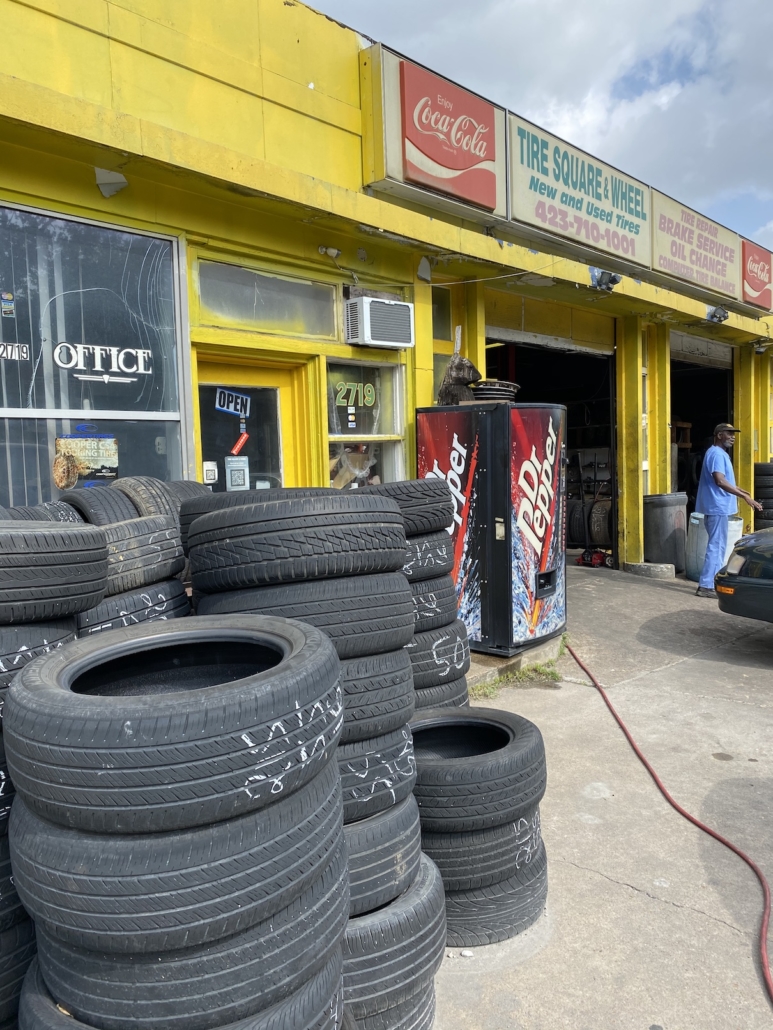The Ecological Advantages of Appropriate Tire Upkeep
Preserving correct tire care is usually ignored, yet its influence on the atmosphere is extensive. Proper tire maintenance not just extends the life-span of tires however also lowers garbage dump waste and adds to boosted air quality.
Lowered Fuel Consumption
Improving tire maintenance practices can lead to a significant reduction in fuel usage for automobiles. According to the United State Division of Energy, underinflated tires can reduce gas mileage by 0.2% for every 1 psi decrease in pressure in all four tires.
Along with tire pressure, normal tire turnings and placements additionally play an essential role in fuel efficiency. Unevenly worn tires can increase fuel consumption as the engine works harder to preserve speed and grip. By preserving correct placement and revolving tires at suggested periods, motorists can ensure even prolong the life and put on of their tires, inevitably conserving fuel and minimizing their carbon footprint.
Extended Tire Lifespan
Expanding the life-span of tires is a vital facet of effective car maintenance techniques that can produce cost financial savings and ecological benefits in the long run. By appropriately preserving tires, drivers can substantially extend their functionality, decreasing the frequency at which brand-new tires require to be produced and old ones dealt with. This not just conserves beneficial resources but additionally lessens the energy and exhausts connected with tire manufacturing and disposal processes.
Frequently checking tire pressure, revolving tires, and making sure proper positioning are vital action in prolonging tire lifespan. Adequate step depth is critical for optimum traction and safety and security, but it additionally plays a function in how much time tires can be used prior to needing replacement. Furthermore, preventing hostile driving actions that speed up tire wear, such as harsh stopping and sharp turns, can additionally improve tire durability.
Ultimately, boosting the long life of tires with positive upkeep not only benefits the atmosphere by lowering waste and conserving resources however likewise brings about cost savings for car proprietors by postponing the demand for new tire acquisitions.
Reduced Emissions Outcome
Effective tire maintenance practices contribute to a decrease in discharges outcome, lining up with environmental sustainability objectives in the vehicle market. By maintaining optimal tire stress degrees, vehicle drivers can assist alleviate these unfavorable environmental impacts.
Moreover, properly maintained tires additionally enhance traction and reduce rolling resistance, further improving fuel effectiveness. This, subsequently, reduces the quantity of exhaust gases released right into the environment. In addition, ensuring tires are effectively pumped up and aligned can expand the lifespan of the tires, reducing the regularity of tire substitutes and the associated ecological costs of tire manufacturing and disposal.

Decreased Land Fill Waste
Provided the positive effect of correct tire maintenance on lowering discharges output, another significant ecological benefit is the potential for reduced land fill waste. When tires are not kept properly, they wear out much faster and need to be replaced a lot more regularly. This causes a greater quantity of used tires being dealt with in landfills. Nevertheless, by ensuring that tires are appropriately blown up, aligned, balanced, and turned consistently, their lifespan can be substantially prolonged. This indicates that less tires finish up in land fills, reducing the quantity of non-biodegradable waste in these currently overruning websites.

Improved Air Top Quality
Enhancing air high quality through appropriate tire maintenance methods is an essential facet of sustainable environmental stewardship. When tires are underinflated, they develop much more moving resistance, leading to raised fuel usage and greater discharges of harmful contaminants such as carbon monoxide and nitrogen oxides. Effectively inflated tires not just enhance gas efficiency however additionally decrease the quantity of toxins released into the air.
In addition, well-maintained tires with appropriate step depth and positioning add to safer driving conditions, decreasing the likelihood of crashes that can result in the release of extra contaminants right into the ambience. By extending the lifespan of tires with routine maintenance and turning, less tires are thrown out too soon, decreasing the environmental impact of tire disposal and manufacturing procedures.
Verdict
To conclude, appropriate tire maintenance supplies numerous environmental advantages. By reducing fuel usage, expanding tire lifespan, lowering emissions outcome, decreasing landfill waste, and enhancing air quality, people can add to a much healthier earth. These initiatives not only benefit the environment however also help to conserve sources and decrease total environmental impact. It is vital for individuals Click Here to focus on tire upkeep as a basic yet efficient means to secure the environment for future generations.
Correct tire maintenance not just extends the lifespan of tires yet also reduces garbage dump waste and contributes to boosted air high quality - tire tracks morris il. By maintaining correct positioning and rotating tires at suggested intervals, motorists can make sure also use and prolong the life of their tires, eventually conserving fuel and reducing their carbon impact
By effectively preserving tires, vehicle drivers can dramatically extend their functionality, reducing the regularity at which brand-new tires need to be made and old ones disposed of.Regularly inspecting tire stress, turning tires, and ensuring appropriate placement are important actions in expanding tire life expectancy. Additionally, guaranteeing tires are effectively blown up and straightened can prolong the life-span of the tires, minimizing the frequency of tire replacements and the associated ecological costs of tire production and disposal.